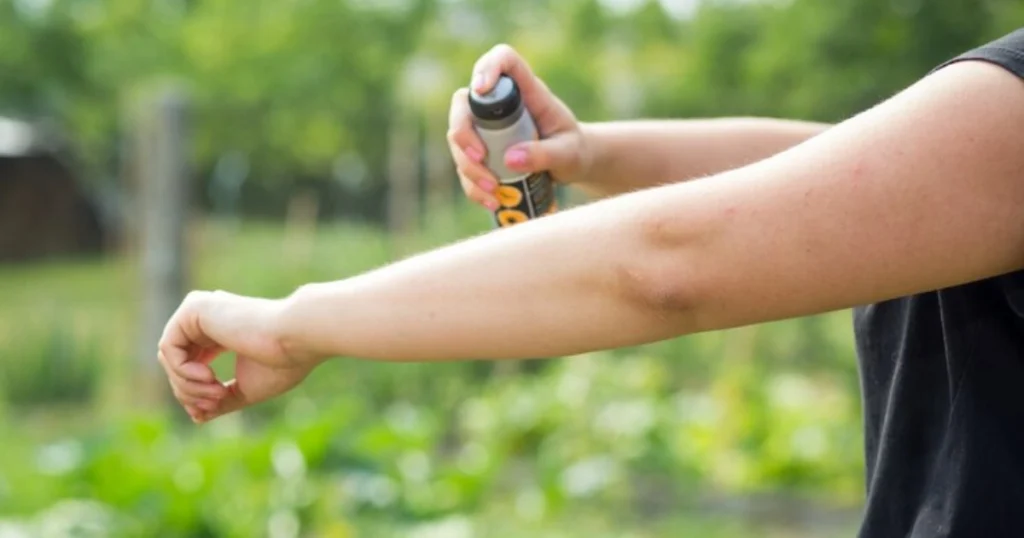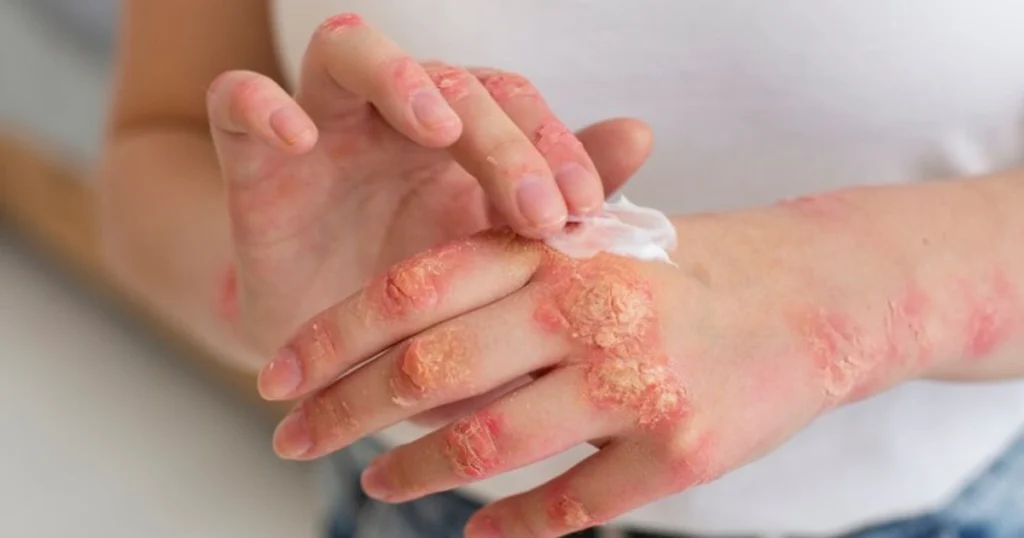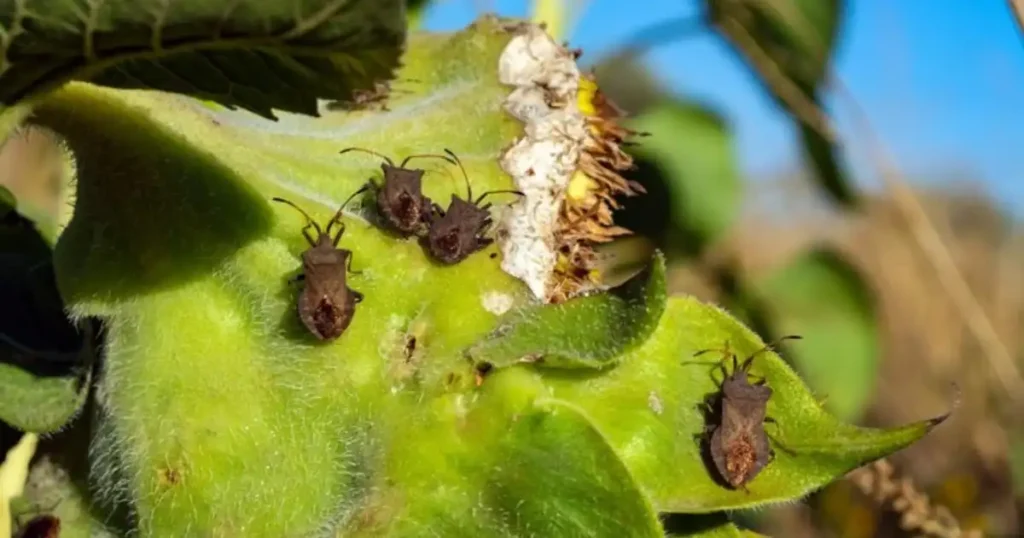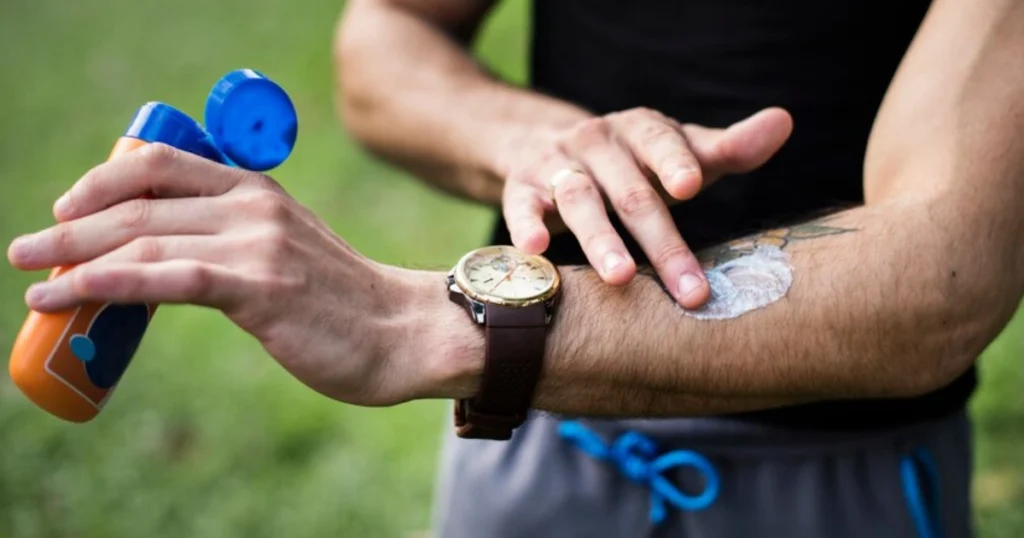Gardening enthusiasts often wonder, “Can you get scabies from gardening?” The good news is that contracting scabies from gardening is highly unlikely.
Scabies mites, the tiny culprits behind this itchy condition, primarily spread through prolonged skin-to-skin contact with an infected person, not through plants or soil.
While gardening might expose you to other skin irritants, scabies from gardening is not a common concern. So, put on your gloves, grab your tools, and enjoy the therapeutic benefits of gardening without worrying about scabies and more!
What is Scabies?

Scabies is a common skin infestation caused by a tiny mite called Sarcoptes scabiei. These microscopic mites burrow into the upper layer of the skin where they live and lay eggs. This causes intense itching and a pimple-like rash.
How Does Scabies Spread?
Scabies is typically spread through direct, prolonged skin-to-skin contact with an infected person. This usually occurs within households or through intimate contact. While less common, scabies can also be spread through contact with infested items like bedding, clothing, or towels.
Can You Get Scabies from Gardening?
The good news is that getting scabies from gardening directly is very unlikely. Scabies mites prefer human skin and cannot survive for long periods away from it.
However, there are a few indirect ways getting scabies from gardening and might increase your risk:
- Contact with Infested Materials: If you come into contact with gardening gloves, tools, or furniture that have been used by someone with scabies, you could potentially pick up the mites. This is more likely if the items were used recently by an infected person.
- Contact with Infested Animals: Although the scabies mites that affect animals are different from those that infest humans, they can still cause a temporary skin reaction. Coming into contact with an animal that has scabies, such as a dog or wild rabbit, could lead to itching and irritation.
Symptoms of Scabies From Gardening

The classic symptom of scabies from gardening is intense itching, especially at night. Other common signs include:
- Rash: A pimple-like rash often appears in the folds of the skin, such as between fingers, wrists, elbows, and buttocks.
- Burrows: Thin, raised lines on the skin may be visible, indicating the mites’ burrowing activity.
If you suspect you may have scabies, it’s important to see a doctor for proper diagnosis and treatment.
Risk Factors Of Scabies From Gardening
While the risk of getting scabies from gardening itself is low, certain gardening activities might slightly increase your risk:
- Sharing tools and equipment: Sharing gardening gloves or tools with others, especially if they have scabies, can increase the risk of transmission.
- Handling potentially infested materials: Coming into contact with soil, mulch, or plants that may have been handled by someone with scabies could potentially expose you to mites. However, the risk of transmission through these materials is very low as mites cannot survive long away from human skin.
- Contact with animals: Handling animals with mange (animal scabies) can cause a temporary skin reaction, although it’s not the same as human scabies.
| Risk Factor | Description | Prevention Strategies |
|---|---|---|
| Shared Gardening Tools | Tools used by multiple people can harbor mites | Clean tools regularly with disinfectants |
| Close Contact with Others | Working in groups increases skin-to-skin contact | Maintain distance when possible |
| Neglecting Personal Hygiene | Not washing hands after gardening can spread mites | Wash hands thoroughly after activities |
| Community Gardening Spaces | High traffic areas can facilitate transmission | Limit sharing of equipment and clothing |
What Precautions Should be Taken to Prevent Scabies From Gardening?
- Wear gardening gloves: Gloves can help protect your hands from potential contact with mites.
- Wash your hands: Wash your hands thoroughly with soap and water after gardening, especially before eating or touching your face.
- Avoid sharing tools and equipment: If you must share tools, clean them thoroughly before and after use.
- Clean gardening clothes: Wash your gardening clothes regularly, especially if you suspect you may have come into contact with scabies.
Are Gloves Effective To Prevent Scabies From Gardening ?
Wearing gardening gloves can be an effective way to reduce the risk of scabies transmission, especially if you are handling tools or materials that may have been used by someone with scabies. However, it’s important to remember that gloves are not a foolproof method of prevention.
Can Gardening Tools Transmit Scabies?
It’s possible for scabies mites to survive for a short time on gardening tools, especially if they have been used recently by someone with scabies. However, the risk of transmission through tools is generally low.
How Long Can Scabies Mites Survive on Gardening Equipment?
Scabies mites can survive for a short time on gardening equipment, typically no more than 24-36 hours. The survival time depends on factors such as temperature and humidity.
Can Plants Harbor Scabies Mites?

Scabies mites are human parasites that require human skin to survive and reproduce. They cannot live on plants or any other animals. Plants do not provide the necessary environment for scabies mites to thrive. While it’s possible for a mite to briefly land on a plant, it cannot survive or reproduce there.
Therefore, contracting scabies from plants is highly unlikely. Always prioritize good hygiene practices and avoid direct contact with individuals infected with scabies to prevent infestation.
Do Certain Plants Pose High Risk of Scabies From Gardening?
While scabies is a skin infestation caused by mites, it’s primarily transmitted through direct skin-to-skin contact with an infected person. Plants themselves do not cause scabies and cannot harbor the specific mite responsible for this condition.
However, prolonged contact with certain rough or irritating plants might cause skin irritation that could be mistaken for scabies. It’s crucial to differentiate between allergic reactions to plants and the actual scabies infestation. If you suspect scabies, consult a healthcare professional for proper diagnosis and treatment.
Is Scabies More Common Among Landscapers and Gardeners?
While landscapers and gardeners work outdoors and handle various plants, there’s no evidence to suggest they have a higher risk of scabies. Scabies is primarily transmitted through prolonged skin-to-skin contact with an infected person, not through plants or soil.
Landscapers and gardeners might experience other skin irritations due to exposure to certain plants, insects, or allergens. However, these are not related to scabies. Maintaining good personal hygiene and avoiding contact with infected individuals remain the most effective ways to prevent scabies, regardless of profession.
What Symptoms Should Gardeners Watch for After Potential Scabies Exposure?
If you suspect you may have been exposed to scabies, watch for the following symptoms:
- Intense itching: This is often the first and most noticeable symptom.
- Rash: A pimple-like rash may develop, especially in skin folds.
- Burrows: Thin, raised lines on the skin may indicate the presence of mites.
| Symptom | Description | Notes |
|---|---|---|
| Itching | Intense itching, especially at night | Common first symptom |
| Rash | Red, raised bumps or blisters | Often found in skin folds or between fingers |
| Burrows | Tiny, grayish-white lines on the skin | Indicates the presence of mites |
| Scabs | Sores caused by scratching | May lead to secondary infections |
| Skin Changes | Changes in color or texture | Can be mistaken for other skin conditions |
Are There Specific Gardening Practices That Increase Scabies Risk?
While gardening itself does not pose a significant risk for scabies, certain practices might slightly increase your risk:
- Sharing tools and equipment: Sharing gloves or tools without proper cleaning can facilitate transmission.
- Handling potentially infested materials: Contact with soil, mulch, or plants handled by someone with scabies could potentially expose you to mites, although the risk is very low.
- Contact with animals: Handling animals with mange can cause a temporary skin reaction.
Scabies Diagnosis After Gardening Activities
If you suspect you have scabies after gardening, see a doctor for diagnosis. The doctor will likely examine your skin and may take a skin scraping to confirm the presence of mites or eggs.
How to Treat Scabies If Contracted While Gardening?

Scabies is treated with prescription medications, usually in the form of creams or lotions that kill the mites. It’s important to follow your doctor’s instructions carefully and to treat all household members and close contacts at the same time, even if they don’t have symptoms.
Scabies Treatment Options Gardening Exposure
The treatment for scabies contracted through gardening exposure is the same as for scabies contracted through any other means. Your doctor will prescribe a scabicide cream or lotion to be applied to the entire body from the neck down. It’s crucial to follow the treatment instructions carefully and to complete the full course of medication.
How to Treat Scabies Fast
While there is no instant cure for scabies, prompt treatment with prescription medications can effectively eliminate the mites and provide relief from symptoms. Over-the-counter remedies are not effective for treating scabies.
What is the Relationship Between Soil and Scabies Transmission Risk?
Soil itself does not play a significant role in scabies transmission. Scabies mites cannot survive for long periods in soil. However, it’s possible for mites to be present in soil that has been contaminated with infested materials, such as clothing or bedding. The risk of contracting scabies from soil is generally considered to be very low.
Conclusion
Gardening offers numerous benefits for physical and mental well-being. While the risk of contracting scabies from gardening is generally low, it’s important to be aware of the potential risks and take precautions to protect yourself.
By practicing good hygiene, avoiding sharing tools, and being mindful of potential contact with infested materials, you can enjoy your gardening activities while minimizing the risk of scabies.
If you suspect you may have scabies, see a doctor promptly for diagnosis and treatment.
FAQs
Can You Get Scabies from Gardening Plants?
No, you cannot get scabies from plants. Scabies mites are human parasites that need human skin to survive. They cannot live or reproduce on plants.
Can You Get Scabies from Gardening Soil?
The risk of getting scabies from gardening soil is very low. Scabies mites cannot survive for long periods in soil. However, it’s possible for mites to be present in soil that has been contaminated with infested materials.
Can You Get Scabies from Animals?
The type of scabies that affects animals is different from human scabies. While you cannot get human scabies from animals, contact with an animal that has mange can cause a temporary skin reaction with itching and irritation.
Can You Get Scabies from Gardening Hay?
Similar to soil, the risk of getting scabies from hay is low. Mites cannot survive for extended periods in hay unless it has been contaminated with infested materials.
Can You Get Scabies from Gardening Grass?
No, you cannot get scabies from grass. Scabies mites need human skin to survive.
